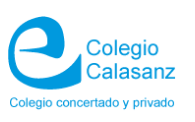The G C School of Careers is a private English secondary school established in 1973 in Nicosia, Cyprus. It is a 7-form high-school, offering students the opportunity to undertake various academic subjects of their choice at IGCSE Level and A-Level, thus helping them to successfully enter high-ranked universities in the United Kingdom. Specific subjects, exams and language courses are also available for students who wish to enter universities in Cyprus, Greece, other European countries like Spain, France and Germany, but also in the United States. The G C School of Careers also owns a Primary and an Elementary school, located at a different location near the secondary school, both established at 2011. The G C School of Careers (secondary) consists of around 600 students and around 70 teachers. The school has an Administration Department (Secretarial Staff, Administration Officers (also dealing with EU Projects) and a Human Resource Officer), an Accounts Department, an Ev...



